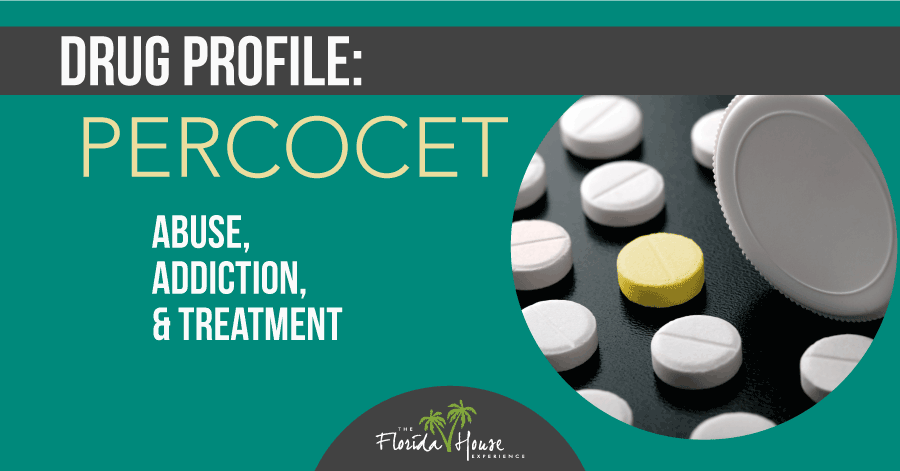Percoset is a powerful drug commonly prescribed to individuals suffering from moderate to severe pain. While the drug is effective in treating pain, its use comes with the risk of addiction. In this article, we will explore the addictive qualities of Percoset and discuss the risks associated with its use. We will also look at signs of addiction and treatment options available to individuals struggling with Percoset addiction.
Percoset is an opioid drug and is highly addictive. It is a powerful pain reliever and is habit-forming, even at normal prescribed doses. Those who take Percoset are at greater risk of becoming addicted, even if they are taking the drug as prescribed. Those who misuse the drug or take more than the prescribed dose are even more likely to become addicted. People who are addicted to Percoset may need professional help to overcome their addiction.

What is Percocet?
Percocet is a combination of the opioid pain reliever oxycodone and the non-opioid pain reliever acetaminophen. It is used to treat moderate to severe pain and is available in both immediate-release and extended-release formulations. Percocet is a prescription drug and is only available with a doctor’s prescription.
How Does Percocet Work?
Percocet works by binding to opioid receptors in the brain, which decreases the perception of pain and can also produce a feeling of euphoria. Oxycodone has a high potential for abuse and addiction due to its effects on the brain’s reward system. Acetaminophen also has pain-relieving properties, but it does not have the same potential for abuse and addiction as oxycodone.
Is Percocet Addictive?
Percocet is a powerful opioid medication, and it has a high potential for abuse and addiction. It activates the same reward pathways in the brain as other opioids, and it can lead to physical and psychological dependence. People who misuse or abuse Percocet may become addicted to it and may suffer from withdrawal symptoms when they stop taking it.
How to Avoid Addiction to Percocet?
The best way to avoid addiction to Percocet is to take it only as prescribed by a doctor, and to follow their instructions for use. People who take Percocet for a long period of time may become dependent on it and may experience withdrawal symptoms when they stop taking it. It is important to talk to a doctor about any concerns regarding Percocet use and addiction.
What are the Signs of Percocet Addiction?
Signs of Percocet addiction include taking the drug in higher doses or more frequently than prescribed, a strong craving for the drug, and inability to control use. Other signs of addiction include neglecting responsibilities in order to use the drug, engaging in risky behaviors while using the drug, and experiencing withdrawal symptoms when not using the drug.
What are the Treatment Options for Percocet Addiction?
Treatment for Percocet addiction typically includes a combination of medications and therapy. Medications such as buprenorphine and naltrexone can help reduce cravings and withdrawal symptoms. Therapy can help people understand why they are using the drug and develop strategies to cope with cravings. Support groups can also be helpful in the recovery process.
Related Faq
What Is Percocet?
Percocet is a prescription opioid pain reliever with the combination of acetaminophen and oxycodone. It is used to treat moderate to moderately severe pain. It works by changing the way the brain and nervous system respond to pain. It is available in both immediate-release and extended-release forms.
Is Percocet Addictive?
Yes, Percocet can be addictive. Percocet is an opioid, and like any other opioid, it carries a risk of addiction, dependence, and misuse. Taking Percocet can lead to physical and psychological dependence, which means that stopping the drug abruptly can lead to withdrawal symptoms. People who are taking Percocet for a long period of time can become tolerant to the drug and need larger doses to achieve the same effect.
What Are the Signs of Percocet Addiction?
The signs of Percocet addiction can include taking higher doses of the drug than prescribed, taking it for longer periods than prescribed, feeling the need to take the drug in order to feel normal, and taking it for recreational purposes. Other signs can include doctor shopping to get multiple prescriptions, difficulty in controlling or stopping use of the drug, and cravings for the drug.
What Are the Side Effects of Percocet?
The side effects of Percocet can include constipation, nausea, vomiting, drowsiness, lightheadedness, dizziness, headache, dry mouth, and itching. It can also lead to slowed or shallow breathing, confusion, and mood changes. In some cases, it can also lead to an allergic reaction, which can include hives, rash, difficulty breathing, and swelling of the face, lips, tongue, or throat.
What Are the Risks of Taking Percocet?
The risks of taking Percocet include addiction, overdose, and death. It can also lead to liver damage if taken in large doses, as well as slowed or shallow breathing, confusion, and mood changes. It is important to take Percocet only as prescribed and to never take more than the prescribed dose.
What Should I Do If I Think I Am Addicted to Percocet?
If you think you may be addicted to Percocet, it is important to seek help right away. Talk to your doctor and get a referral to a mental health professional or addiction specialist. They can help you find the best treatment and support for your situation. Treatment options can include medication-assisted treatment, counseling, support groups, and other forms of therapy.
What’s the difference between Percocet and heroin?
Percoset is an opioid drug that is highly effective in treating pain, but it is also highly addictive. It is important to be aware of the risks of addiction before taking Percoset. Addiction can have serious physical, mental, and emotional consequences. If you think you may be at risk for addiction to Percoset, it is important to talk to your doctor about your concerns. The risks of addiction to this powerful drug should not be taken lightly.

